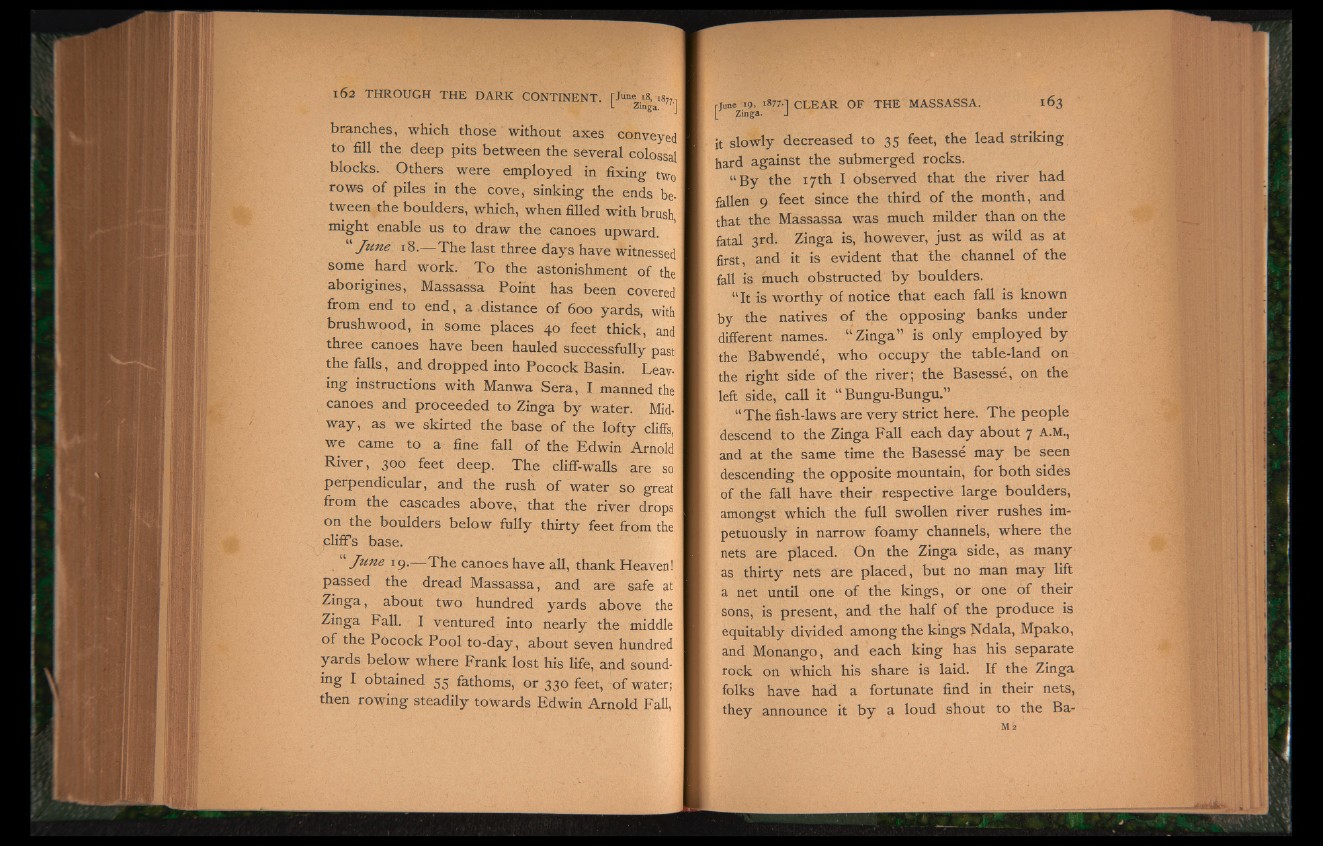
branches, which those without axes conveyed
to fill the deep pits between the several colossal
blocks. Others were employed in fixing two
rows of piles in the cove, sinking the ends be- j
tween the boulders, which, when filled with brush I
might enable us to draw the canoes upward. '
June 18.— The last three days have witnessed
some hard work. To the astonishment of the
aborigines, Massassa Point has been covered
from end to end, a .distance of 600 yards, with
brushwood, in some places 40 feet thick, and
three canoes have been hauled successfully past
the falls, and dropped into Pocock Basin. Leaving
instructions with Manwa Sera, I manned the
canoes and proceeded to Zinga by water. Midway,
as we skirted the base of the lofty cliffs,
we came to a fine fall of the Edwin Arnold
River, 300 feet deep. The cliff-walls are so
perpendicular, and the rush of water so great
from the cascades above, that the river drops
on the boulders below fully thirty feet from the
cliff’s base.
“ June 19.— The canoes have all, thank Heaven!
passed the dread Massassa, and are safe at
Zinga, about two hundred yards above the
Zinga Fall. I ventured into nearly the middle
of the Pocock Pool to-day, about seven hundred
yards below where Frank lost his life, and sounding
I obtained 55 fathoms, or 330 feet, of water;
then rowing steadily towards Edwin Arnold Fall,
rJune 19. i8771 CLEAR OF THE MASSASSA. 163
| f Z in g a . J
it slowly decreased to 35 feet, the lead striking
hard against the submerged rocks.
“ By the 17th I observed that the river had
fallen 9 feet since the third of the month, and
that the Massassa was much milder than on the
fatal 3rd. Zinga is, however, just as wild as at
first, and it is evident that the channel of the
fall is much obstructed by boulders.
“ It is worthy of notice that each fall is known
by the natives of the opposing banks under
different names. “ Zinga” is only employed by
the Babwende, who occupy the table-land on
the right side of the river; the Basesse, on the
left side, call it “ Bungu-Bungu.”
“The fish-laws are very strict here. The people
descend to the Zinga Fall each day about 7 A.M.,
and at the same time the Basesse may be seen
descending the opposite mountain, for both sides
of the fall have their respective large boulders,
amongst which the full swollen river rushes impetuously
in narrow foamy channels, where the
nets are placed. On the Zinga side, as many
as thirty nets are placed, but no man may lift
a net until one of the kings, or one of their
sons, is present, and the half of the produce is
equitably divided among the kings JMdala, Mpako,
and Monango, and each king has his separate
rock on which his share is laid. If the Zinga
folks have had a fortunate find in their nets,
they announce it by a loud shout to the Ba-
Mi